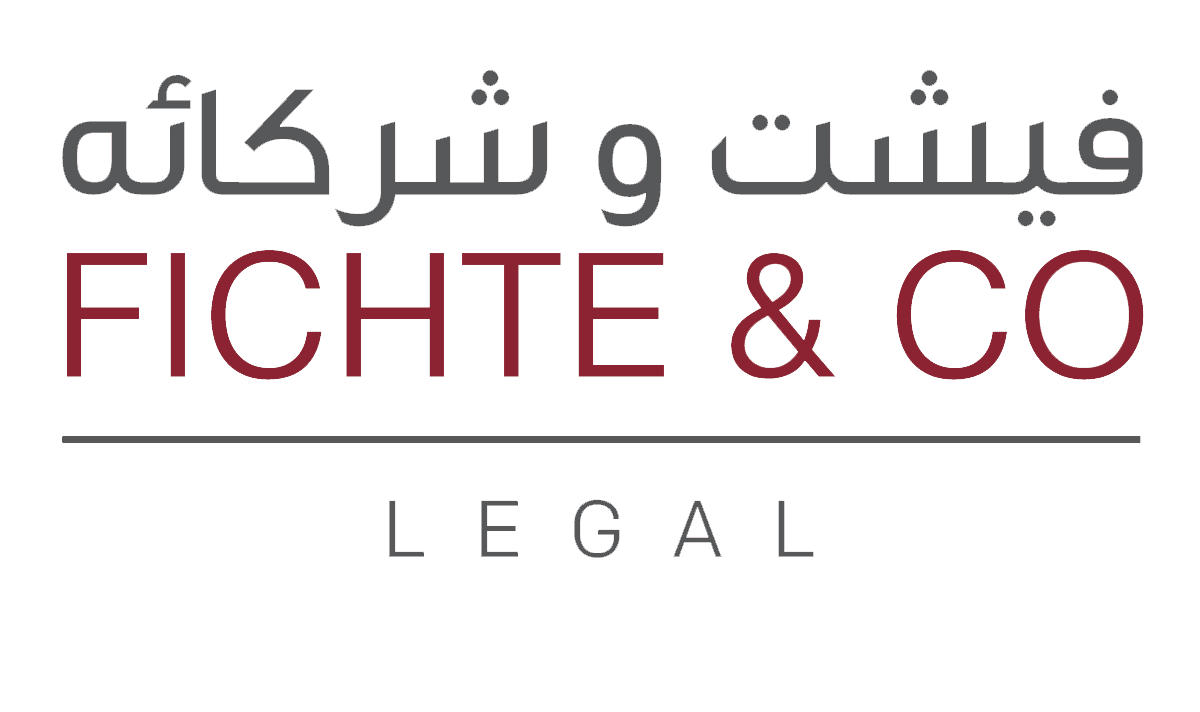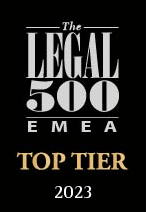Clients often ask us, “How can we conduct legal due diligence or background checks on another party in the UAE?” Unfortunately, there’s no straightforward answer. With no centralised company register, and over 40 different free zones, obtaining basic information about UAE free zone companies may pose a daunting challenge. Even so, there are still effective tools available to uncover the information you need.
What is legal due diligence?
In the simplest terms, legal due diligence is a process of obtaining sufficient and reliable information about a business entity with the objective of uncovering any fact, circumstances, or legal risks or situation, that is likely to influence a business decision.
The need for legal due diligence arises in the context of various business decisions. These include: deciding whether to buy or invest in a company and determining its purchase price; ascertaining whether to lend money to a borrower; choosing a joint venture partner or an agent; entering a contract with another party; or in general terms, approving a customer before proceeding with a transaction or contract.
What level of due diligence do I need to take?
There is no ‘one size fits all’ approach, so we recommend a risk-based approach which takes into account the facts and circumstances of each case. As a general rule, the level of due diligence needed is largely proportionate to the type of transaction or business contemplated with the counterparty.
Regulated professional services companies (such as those in the legal or financial sectors) are required to conduct basic due diligence on customers, so as to ensure that they are not assisting a client who may be involved in unlawful activities, such as money laundering. This usually involves a standard ‘know your customer’ (KYC) process, plus background checks and analysis.
For mergers and acquisition (M&A) opportunities, due diligence is not mandated by UAE law. However, we recommend that buyers conduct extensive due diligence on the other party, looking for any actual, potential or constructive liabilities of the company, as well as any legal, regulatory or contraction limitations, or lack of authority to complete a sale or change of ownership. Due to the additional workload of an extensive due diligence process, it is common to hire a consulting firm to assist. Legal issues that can influence the business decision or the purchase price of acquisition are analysed from a number of dimensions, including corporate, real estate, intellectual property and employment.
Anti-corruption due diligence has gained momentum, thanks to increasing instances of fines and investigations on companies governed by anti-corruption legislation, including the FCPA and the UKBA. Robust anti-corruption due diligence goes beyond basic KYC and background checks, involving a risk-based approach. Indicators include the geographic location of the business transaction, industry risk, third-party risk, and whether the transaction involves interaction with public officials. Based on the indicators, corruption risk may be assessed as low, medium or high, and an appropriate level of due diligence may be applied on the third party.
 What due diligence tools are available in the UAE?
What due diligence tools are available in the UAE?
The key tools for conducting due diligence in the UAE include conducting preliminary KYC checks, accessing publicly available information, and obtaining information directly/privately from the target.
KYC and Background Screening
Conducting a basic KYC and background check involves obtaining the name and address of the client, verifying their identity based on reliable supporting documents, and conducting specific checks on the client against the various sanctions, laws and enforcement lists.
For an individual, the documentation would typically include a passport copy and proof of address (such as a utility bill). For corporate bodies, this includes a certificate of incorporation and commercial license, as well as carrying out a search to ascertain that the company still exists, verifying the identity of the person who controls the business, identifying shareholders and key directors, and ascertaining that the person you are dealing with has the authority to act in this capacity.
There are various third party risk management and compliance software available today which assists companies in screening and assessing risks of third parties, such as Thomson Reuters’ WorldCheck and Dow Jones’ Risk Reports.
Public Information and Searches
1. Company Searches and Credit Ratings
While there is no central database of companies in the UAE, it is not impossible to uncover information about companies in the public domain. Below are various options available to ascertain and mitigate legal risks, particularly credit risks.
- Department of Economic Development (DED) database
If a company is based on the UAE mainland, it may be possible to obtain basic corporate information from the DED website, where the company is registered. DED provides information such as the trade license number of the company, status (whether active or expired), expiry date, its licensed activities, and the contact information and coordinates of the company.
- Dubai Chamber of Commerce
With most mainland companies registered with the Dubai Chamber of Commerce and Industry (DCCI), it can provide third parties with business information reports on registered companies for a nominal fee (and without the knowledge of the subject). This includes credit ratings and recommended credit limits, in addition to companies’ business, economic and financial information, such as details of shareholders, directors, auditors, bankers, payment history, purchasing terms and major customers.
- Al Etihad Credit Bureau (AECB)
AECB is a federal government company which operates a credit reporting system across the UAE. It collates data from all UAE banks, financial institutions and individuals and produces credit reports for a nominal fee which specify the debt levels and financial creditworthiness of both individuals and corporate entities incorporated in the UAE. Obtaining this report requires the consent and cooperation of the individual or corporate entity.
For individuals, an AECB report includes details of debt levels, financial obligations, credit payment history and the company’s track record of payments over the past two years. To obtain this report, it is necessary to submit the individual’s original Emirates ID card and a copy of their passport.
For corporate entities, the AECB report includes the company’s address, the details of its ownership, credit facilities availed by the entity and total amount of credit taken, and the company’s track record for payments over the past two years. To obtain this report from AECB, it is necessary to submit the original Emirates ID card of the company’s owner or authorised signatory, the original trade license and articles of association of the company.
2. Litigation Search
In the UAE, information about litigation or fines against a third party is not available to the public. However, it may be possible to obtain such information if the third party has given you an express power of attorney to do so.
3. Real Estate
Unlike other jurisdictions, the land register maintained by each emirate in the UAE is not publicly accessible and can only be inspected by interested parties, judicial authorities, experts appointed by judicial authorities and other competent authorities.
4. Intellectual Property
A basic search of registered trademarks in the UAE may be carried out via DED’s website, which aims to increase awareness about registered trademarks and avoid intellectual property infringements.
Obtaining Information Directly from the Target
Due diligence based on publicly available information is generally deemed insufficient, especially for a critical business decision such as an M&A or loan transaction. Robust due diligence will involve direct interaction and interviews with the target to obtain further information and documentation for review.
For example, an M&A due diligence would need the other party’s cooperation and availability to provide the acquirer’s lawyers with information and documentation, as per a checklist or questionnaire. The objective is to:
- investigate the target’s business through review of internal documents, contracts and licenses
- identify any regulatory approvals or third party consents
- confirm title to assets
- evaluate factors that may have an impact on the business
Similarly, meaningful anti-corruption due diligence would involve checking whether the counterparty has adequate systems in place to detect or prevent corrupt payments, and evaluating the counterparty’s anti-corruption compliance programme and policies.
How can you obtain information from the other party?
Information from the other party is usually obtained via a ‘data room’. This is a secure location (either physical or virtual) which houses confidential data or information that may be accessed by investment banks or potential acquirer’s lawyers to conduct due diligence.
Traditionally, physical data rooms located in target entities’ offices were used for the due diligence process. While this practice is still prevalent, the more modern approach is to provide online access to due diligence documents through a virtual data room (VDR). The advantages of a VDR are that it enables uniform access to the due diligence documents if there are multiple potential acquirers, ensuring the process is fair. Additionally, the target retains control over the documents and can restrict the users from saving, printing or even viewing the documents, ensuring access is secure.
Requests for clarifications from the target are generally obtained by a written questionnaire or by interviews with management representatives.
How is confidential information protected during the due diligence process?
The party conducting the due diligence and other party generally enter into a confidentiality and non-disclosure agreement prior to the due diligence process, particularly where sensitive commercial or personal information is involved.
What are the usual contents of a due diligence report?
The legal due diligence report will generally contain the following information:
- the company, its shareholders and directors
- any restrictions in the constitutional documents of the company which prevents it from performing the transaction
- key contracts that the company has entered into and any contractual provisions that may impose limitations on transaction
- financial facilities used by the company and any restrictions they impose
- details of the company’s licenses and compliance with applicable laws
- real estate owned or leased by the company
- the quality of the company’s insurance cover
- the company’s intellectual property rights
- any litigation that the company is involved in
What is the outcome of the due diligence process?
As well as determining if there are any fatal flaws in a proposed transaction, the legal due diligence process helps decision makers evaluate the commercially negotiable issues and key contractual provisions that need to go into the transactional documents.
For example, in an M&A transaction, the acquisition price is often adjusted based on the outcome of the due diligence if there are red flags which affect the deal value. Conditional precedents are commonly added to the share purchase agreement requiring the buyer to remedy legal non-compliances, such as renewing an expired license.
Tailored representation and warranties backed by suitable indemnity provisions may also be incorporated in the transaction documents. In this respect, the other party generally provides a letter disclosing any exceptions to the representations and warranties in the transaction documents to protect itself from the scope of such warranties.
What are the typical limitations to the scope of a due diligence?
Legal due diligence is generally limited to review of the documents and information relating to a fixed period, such as the previous two to five financial years. Also, the legal due diligence report will not express any opinion on commercial, financial or fiscal issues.
Slowly but surely, the UAE’s regulatory framework is developing, making it more conducive to conducting due diligence on business entities. Looking forward, a computerised public database of companies and a system to check title assets of an owner will go a long way in making it easier to do business and raising investor confidence. With the Dubai Government’s ongoing efforts to make Dubai a smart city, it may not be long before these measures are in place, with the first steps having already been made on the DED website’s trademark database.
Fichte & Co can assist with any Due Diligence consulting requirements you may have. Contact us for assistance on +971 44 357 577.
Click here to download the full article.
Authors:Franco Grilli and Priyasha Corrie
[/vc_column_text][/vc_column][/vc_row]




